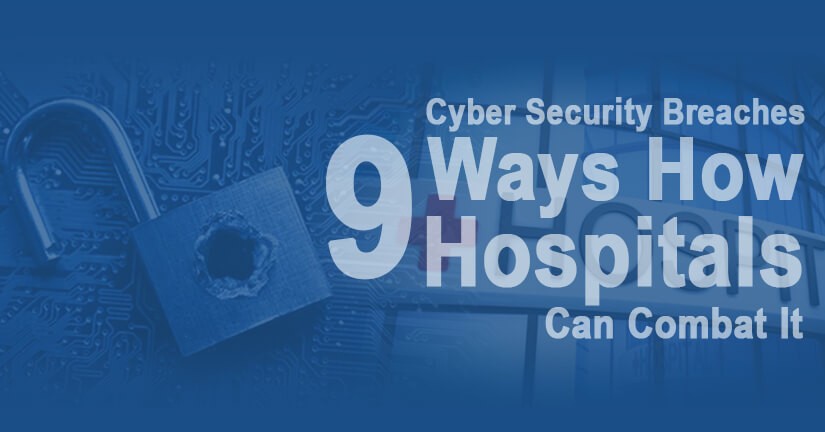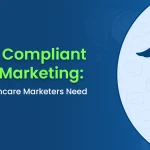The healthcare industry is one of the highly sensitive domains handling millions of patient data on a daily basis. Maybe that is why the sector is also highly vulnerable to cybercrimes happening now and then. For instance, in the year 2017, a data breach took place in Dakota where cyber attack hit plastic surgery associates, causing loss of 10000 patient data. Such figures are alarming.
Though, both the HIPAA and the federal bodies put in their best to take measures and implement policies that will prevent such cybercrimes. However, hackers are much more advanced and proactive staying one step ahead in the matter. When such breach cases take place, it not only compromises data but also puts a question mark on the security preparations of the healthcare providers.
As the number of the Internet devices is increasing, medical organizations especially hospitals are becoming more vulnerable. Hence, hospital authorities need to buckle up and come up with robust strategies to protect data.
Here are some nine useful tips on how you as a hospital owner can strengthen your security measures before hackers knock you down.
Analyze How Secure Is Your Network
Before going ahead with any strategy, first audit the network security set up of your hospital. When you are in the healthcare sector, you have to abide by the HIPAA guidelines that dictate privacy and data protection regulations. But is that enough to assure that your systems are safe? Well! It’s not because HIPPA formulates laws, but it is up to you to ensure that checks are in place according to those laws.
Therefore, start examining your existing network and collect complete data on everything that affect network security. This may include hardware, software, IT policies, and procedures. There are various guidebooks available on how to assess and evaluate the safety of your network which you can learn from and implement.
Know the Causes of Data Breaches
Taking measures, performing checks, and implementing strategies to prevent or deal with security breaches comes second. Firstly, you need to understand that what causes such violations to occur. The methods hackers use to get into your system may not be same everywhere and every time. It keeps on changing, and you need to be aware of all of them. To stay informed about the current health data breach cases, you can go through various publications on them.
It’s a well-known fact that knowing the enemy gives an advantage over them. Similarly, in the healthcare space to avoid loss of data, you need to identify the common areas of threats and then strategize what you can do to stop it.
Develop Strict Bring Your Device Policy for Employees
At the executive level, almost maximum employees bring their own device to the office for work purpose. Hence, this opens up your device network to multiple vulnerabilities and threats. As a result of which your digitally stored data becomes prone to cyber attacks. Therefore, to address such situations, you can establish strict “Bring Your Own Device” policy which will safeguard devices without compromising on security.
Also, it’s essential on the part of the hospital administration to keep their employees aware of the device policies and updates if any. What the IT department of your hospital can do is give the staff a list of apps and software that are malicious to prevent their use.
Employ Multi factor Authentication Check
Passwords are not enough to protect valuable data. Their vulnerabilities to cyber attacks are more as hackers can easily crack them. This happens because most people use common passwords like their date of births, name, etc. which hackers can find out in no time. Therefore, implementation of strict measures such as multi-factor authentication system becomes necessary.
Multi-factor authentication is a security protocol that authenticates a person’s identity via multiple ways. It adds an extra level of protection to the existing security set up. Hence, first note down what you want to protect and accordingly lay down the process to authenticate the identity of your hospital staff members. For instance, along with password checks, you can allocate a second verification method in the form of eye and fingerprint scanning, smart device apps, etc. Therefore, before opting for such security measures, sit with your IT team to know what hardware and software they need to get started with its application.
Monitor and Update Devices Every Day
Technology makes life more comfortable and convenient. Nowadays, electronic health record (EHR) keeping is making the job of a physician faster. Even patient can book online appointments, check practice review and lots more. For both the healthcare provider and the care receiver, technology does it all making the functioning of the entire healthcare system seamless.
But like the way, everything good has a negative side too. Vulnerabilities in operating systems, software, and applications are a gift and a curse at the same time. That is why to address these loopholes; software development companies come up with updates including security fixes and patches.
Similarly, at the enterprise level, your hospital administration entirely relies on the use of various software and systems. Hence, they too need timely updates to fill gaps especially related to the security part. Make sure that the IT department never forgets to update the network devices regularly.
Implement Data Encryption Strategy
As security threats soar up, tech companies are coming up with new measures to address them. Encryption is one such technology that has taken security to the next level. From mobile phone companies to chatting apps, everyone is leveraging encryption to protect valuable customer information.
Even healthcare companies are not far behind in responding to the changing market demands. If you want your patient data to stay safe and secure, then implementation of encryption is the best way. Some applications come with inbuilt encryption. However, even if they don’t, then you should ensure to include it in the systems you use to store your hospital data.
When you encrypt data, you ensure that the specific message or information you are protecting is accessible to authorized parties only. But implementing encryption will not work alone. The IT specialists of your hospital must look after its proper management and keep reviewing it from time to time. This will help the technology to work efficiently, serving your purpose.
Prepare for the Worst
Don’t wait for the hacker to steal your sensitive patient data to implement counter strategies. It’s true that even after prevention measures, cyber attack can still take place. However, it is always advisable to keep yourself ready with security plans to prevent any such occurrence in the first place.
As a hospital executive, you must have a response plan ready to deal with any breach situation. You cannot just compromise the security of your network for not being prepared. Such an excuse may cause massive loss to your healthcare data. Therefore, plan the prevention strategy and then go on to teach your staff about the role they will play when the cyber attack takes place.
Back Up Your Data Regularly
The backup system of your hospital must always be up-to-date. To prevent any security breaches, backing up data on a regular basis is essential. It helps reduce possibilities of data leaving unattended or unprotected. Ask your IT department to program the backup software adhering to security guidelines of your hospital. As the amount of security challenges increases, you need to ensure that your backup storage system is capable of meeting the changing demands.
Teach Employees about Cyber Security
Your employees should know the safety protocols. That is when it will help in ensuring the network security of your hospital. Don’t just think about how to secure systems. Instead, try to train your staff to defend their digital activities.
The international security firms like Kaspersky offer free programs to enterprises that can help them train their team members on how to combat cyber breaches. Many companies conduct regular tests and drills to educate their employees. They teach them what methods hackers use and what can be done not to give them such opportunities. You can also follow the same footsteps as part of your defense.











